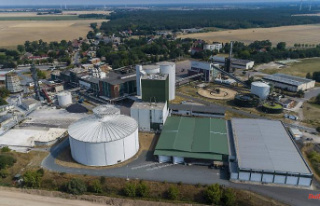With a referendum, a Berlin initiative wants to start a pilot project for a basic income. For the referendum, however, the initiators lack signatures. Nevertheless, the founder of the movement sees a clear mandate for politicians to take action.
In Berlin, the application for a referendum on an unconditional basic income failed due to too few signatures. As the head of state voting announced, around 122,550 signatures were handed over to the Berlin Senate by late Monday evening. As a result, the Basic Income Expedition did not succeed in collecting the number of around 170,000 valid signatures required for the referendum.
There will therefore not be a referendum on the proposed bill for the time being. The initiative called for a state-financed pilot project on basic income. 3,500 Berliners would then have received a basic income for three years. The field test should have been scientifically evaluated and, according to the plans of the initiative, should have given "impulses for the debate about the unconditional basic income".
Expedition Basic Income has now announced that it will decide on the next steps in the coming weeks. "Of course we are disappointed that there will be no referendum for the time being," said the founder of the initiative, Laura Brämswig. But if 125,000 Berliners - according to the initiative - speak out in favor of the first state pilot project for an unconditional basic income in Germany, that is a clear mandate for politicians to take action. "Together, hundreds of volunteers and alliance partners have achieved great things," said the initiative. "Berlin is talking about the unconditional basic income again."
In October 2020, the supporters of the referendum handed over 30,000 signatures to the Senate Administration - and thus successfully cleared the first hurdle of the referendum. In a second phase, around 175,000 valid signatures - seven percent of Berlin's voters - had to be collected within four months. If this had succeeded, the people of Berlin would have been able to vote on the draft law in a referendum.
According to the initiative, it was not easy to collect signatures at first because many supporters of basic income have low incomes themselves and lack the time and resources. In addition, it is difficult to collect signatures on paper. The initiative uses other means to promote electronic voting and the right to vote for foreigners.
The Berlin district election offices have already checked 51,626 of the signatures submitted. 38,056 and thus about 73.7 percent of these are therefore valid. A final result will be announced in mid-September.












